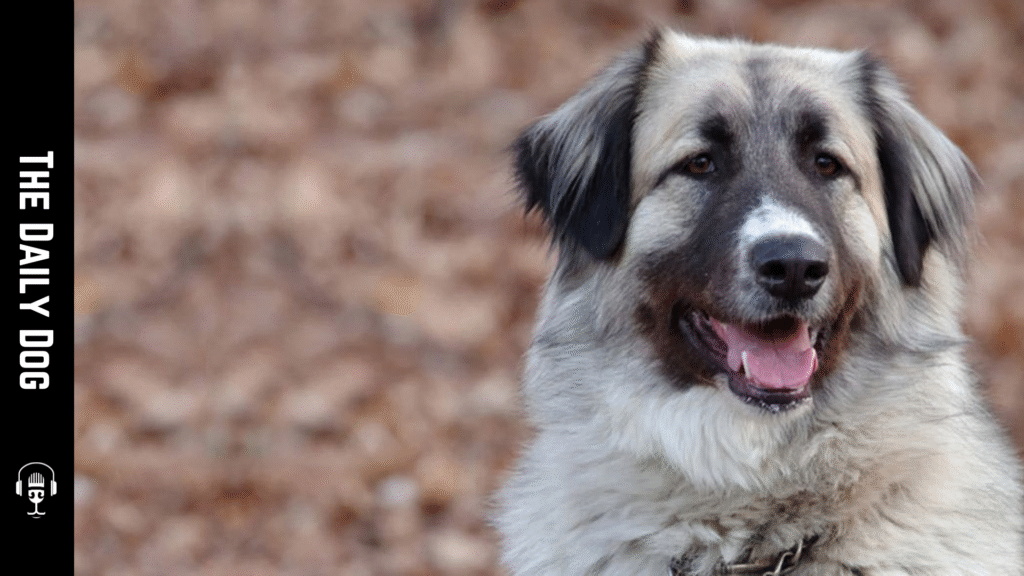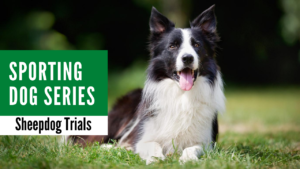The Romanian Carpathian Shepherd is a majestic and resilient breed renowned for its exceptional guarding abilities and deep-rooted connection to the rugged landscapes of the Carpathian Mountains. With a history deeply intertwined with that of Romania itself, this breed embodies strength, loyalty, and an innate protective instinct that has made it a valued guardian for centuries. In this blog post, we’ll explore the origins, characteristics, temperament, care requirements, and the vital role this breed plays in modern times.
Origins and Historical Significance
The Romanian Carpathian Shepherd, also known as the “Romanian Mioritic Shepherd,” has a lineage that stretches back hundreds of years. Romanian shepherds traditionally bred this breed to guard flocks of sheep and cattle against predators such as wolves, bears, and other mountain predators. Its ancestors are believed to be ancient molosser-type dogs, brought into the region by migrating peoples and then selectively bred for strength, endurance, and vigilance.
Throughout history, these dogs have played a crucial role in protecting livestock and ensuring the livelihood of mountain communities. Their rugged nature and independence allowed them to thrive in the challenging terrain and harsh weather conditions of the Carpathians. Over time, their reputation as fearless guardians has been cemented, making them a symbol of protection and resilience in Romanian culture.
Physical Characteristics
The Romanian Carpathian Shepherd is a large, powerful dog with a commanding presence. Its physical traits are well-suited for guarding and enduring the mountain environment.
Size and Build:
Males typically stand between 24 and 28 inches at the shoulder and weigh around 110 to 165 pounds, while females are slightly smaller. Their muscular build, combined with a broad chest and strong limbs, equips them for energy-intensive tasks like patrolling vast areas and confronting predators.
Coat and Color:
One of the breed’s most distinctive features is its dense, double coat, which provides insulation against cold weather. The outer coat is long, straight, and harsh to the touch, while the undercoat is soft and thick. Coat colors vary but usually include shades of gray, black, or brindle, often with a white blaze or markings on the chest and paws.
Facial Features:
They have a broad head with a well-defined stop and expressive dark eyes that exude alertness and intelligence. Their ears are medium-sized, triangular, and often semi-erect or hanging, depending on individual genetics.
Temperament and Behavior
The Romanian Carpathian Shepherd is known for its loyalty, independence, and protective instincts. These dogs are naturally wary of strangers, making them excellent guard dogs, but requiring proper socialization to ensure balanced behavior.
Loyal and Protective:
Once bonded with their family, they are fiercely loyal and will go to great lengths to defend their loved ones and territory. Their alertness makes them excellent watchdogs, as they are quick to bark at unfamiliar sounds or visitors.
Independent and Intelligent:
This breed has a strong independent streak, reminiscent of their centuries-old role as free-ranging mountain guardians. They are intelligent and capable of making decisions on their own, which can sometimes be mistaken for stubbornness. Training requires patience, consistency, and positive reinforcement.
Calm and Steady:
Despite their formidable appearance, Romanian Carpathian Shepherds are calm and composed when at ease in their environment. They thrive in large, open spaces where they have ample room to patrol and fulfill their guarding duties.
Socialization and Training:
Early socialization is crucial in preventing over-protectiveness and suspicion of strangers. They respond well to firm, consistent training and need to understand boundaries and commands. Despite their independence, they are social animals that enjoy being part of the family unit.
Care and Maintenance
The rugged nature of the Romanian Carpathian Shepherd means they are relatively hardy dogs, but they still require proper care to ensure their health and well-being.
Grooming:
Their dense coat requires regular brushing—at least once a week—to prevent matting and reduce shedding. During shedding season, more frequent grooming is necessary. Bathing should be done as needed, mainly to keep their coat clean and free of dirt.
Exercise Needs:
These dogs are highly active and require a great deal of physical and mental stimulation. Daily walks, obedience exercises, and opportunities to patrol or work are essential for maintaining a well-behaved dog. Without sufficient activity, they may become bored and develop undesirable behaviors.
Diet and Nutrition:
A balanced diet tailored to their size, age, and activity level is crucial. High-quality commercial dog food or a well-prepared homemade diet can meet their nutritional needs. Always consult a veterinarian for guidance on portion sizes and specific dietary requirements.
Health Considerations:
Generally, a healthy breed, they can occasionally face issues common to large dogs, such as hip dysplasia or certain genetic conditions. Regular veterinary check-ups and responsible breeding practices help maintain their health.
Living Environment
The Romanian Carpathian Shepherd thrives in spacious environments where they have the freedom to patrol and exercise. They are not well-suited to apartment living due to their size, energy levels, and guarding instincts. A large yard or rural setting provides an ideal environment.
Safety and Security:
Given their protective nature, secure fencing is essential to prevent them from wandering or confronting potential threats. Proper containment ensures the safety of both individuals and others.
Social Needs:
While they are independent, they also crave social interaction with their family members. They are best suited for owners who understand and respect their guarding nature and are committed to socialization and training.
The Modern Role of the Romanian Carpathian Shepherd
Although traditionally used as livestock guardians in mountainous regions, the Romanian Carpathian Shepherd has found a new role in modern society. Many owners value their loyalty and protective instincts, recognizing them as excellent family guardians and watchdogs.
Family Protector:
Their calm demeanor around children makes them suitable family pets when properly trained and socialized. They are gentle with family members but remain vigilant against perceived threats.
Working and Service Roles:
Some individuals and organizations utilize these dogs for security purposes, including guarding properties and livestock. Their natural instincts and strength make them effective in these roles.
Rescue and Conservation Efforts:
In recent years, there has been a resurgence of interest in preserving the breed’s purity and promoting responsible breeding practices to ensure its continued vitality.
Why Choose a Romanian Carpathian Shepherd?
Opting for a Romanian Carpathian Shepherd means embracing a breed that embodies resilience, loyalty, and a deep connection to nature. These dogs excel in environments where they can fulfill their instinct to guard and thrive in active lifestyles. Their protective nature makes them excellent companions for experienced dog owners who understand the breed’s unique needs.
Ideal for Active Owners:
Owners who enjoy outdoor activities, have large properties, or are involved in livestock farming will find this breed to be an invaluable protector.
Loyal and Devoted:
They form strong bonds with their families and are known for their unwavering loyalty.
Exceptional Guardians:
If safety and protection are priorities, this breed offers unmatched vigilance and an instinct to safeguard.
The Romanian Carpathian Shepherd is more than just a guard dog; it is a symbol of strength, resilience, and loyalty rooted in the rugged landscapes of Romania. Its history as a mountain protector continues to define its character, making it a unique addition to families and individuals who appreciate a loyal, vigilant, and resilient canine companion.
Choosing to bring a Romanian Carpathian Shepherd into your life requires understanding their needs, respecting their independence, and committing to their socialization and training. When properly cared for, these remarkable dogs will not only protect your property but also become a beloved member of your family, embodying the spirit of the mountains that inspired their creation.










